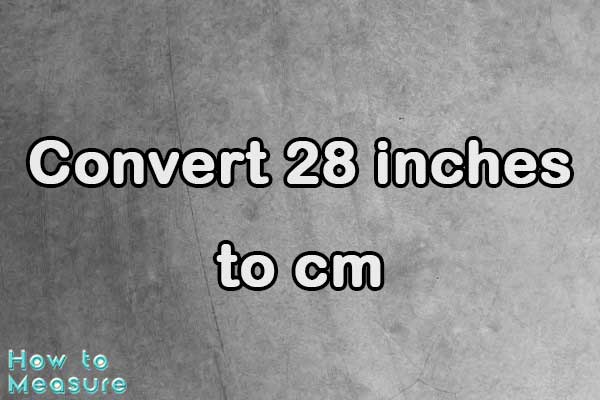Welcome to the world of measurements and conversions! Today, we’re exploring the process of converting 1 inch to centimeters. This seemingly small shift from imperial to metric units exemplifies the power of unit conversions. Join us as we unravel the simplicity and significance of this transformation, showcasing the seamless connection between inches and centimeters.
How many centimeters are in 1 inches?
Let’s explore the conversion of 1 inch to centimeters.
In the realm of measurements, the inch and the centimeter represent distinct units that are commonly used to quantify lengths or distances. While the inch is part of the imperial system, the centimeter is a key unit in the metric system.
To convert inches to centimeters, we use a conversion factor: 1 inch is approximately equal to 2.54 centimeters. This conversion factor arises from the relationship between the two measurement systems. Applying this factor to 1 inch:
1 inch * 2.54 centimeters/inch = 2.54 centimeters
Hence, when you convert 1 inch to centimeters, you obtain a length of approximately 2.54 centimeters. This conversion highlights the precise correlation between these two units, showcasing how the metric system’s base 10 structure simplifies conversions and promotes consistency in measuring various quantities. Whether you’re a student, a professional, or simply curious about measurements, understanding such conversions can prove invaluable in various applications.
The formula for converting 1inches in cm
Converting inches to centimeters involves a simple formula. To convert any length from inches to centimeters, you can use the following equation:
Length in Centimeters = Length in Inches × 2.54
In this formula, “Length in Inches” represents the measurement you want to convert from inches to centimeters. The multiplication factor of 2.54 is derived from the exact conversion rate between the two units: 1 inch is approximately equal to 2.54 centimeters.
For the specific case of converting 1 inch to centimeters:
Length in Centimeters = 1 inch × 2.54 = 2.54 centimeters
Using this formula, you find that 1 inch is equivalent to approximately 2.54 centimeters. This straightforward formula is applicable to various conversions between inches and centimeters, providing a reliable method to quickly switch between these two commonly used units of measurement.
How to Measure Online Converter: Convert 1 inches to cm.
In this guide, we’ll walk you through the seamless process of converting 1 inch to centimeters using our user-friendly platform.
Step 1: Accessing the Converter
Navigate to our website, “How to Measure,” where you’ll find our prominently featured unit converter tool. It’s designed to simplify your conversion tasks, whether you’re a student, a professional, or simply curious about measurements.
Step 2: Selecting the Conversion
Locate the “Convert From” section and choose “Inches” from the dropdown menu. Then, move on to the adjacent “Convert To” section and select “Centimeters.”
Step 3: Entering the Value
Now, input the value you want to convert. For this example, type “1” into the input field next to “Inches.”
Step 4: Initiating the Conversion
With the value entered, you’re ready to proceed. Click the “Convert” button, and in an instant, you’ll receive the converted result.
Step 5: Viewing the Result
Behold! The conversion result will be displayed clearly on your screen. In this instance, the converter will show that 1 inch equals approximately 2.54 centimeters.
Our “How to Measure” online converter ensures accuracy and convenience in all your unit conversion endeavors. Whether you’re tackling a project, studying, or just satisfying your curiosity, our platform offers a reliable solution.
Experience the ease of precise unit conversions with “How to Measure.” Say goodbye to complex calculations and welcome a world of simplicity and accuracy. Start converting confidently today!
Conversion Chart for 1 Inches to Centimeters and Other Metrics
For quick reference, we present a conversion chart that illustrates the equivalent measurements of 1 inch in various metric units. Whether you’re engaged in academic pursuits, practical tasks, or simply want to expand your knowledge, this chart offers a handy reference point.
| Inches | Centimeters | Millimeters | Meters | Kilometers |
|---|---|---|---|---|
| 1 | 2.54 | 25.4 | 0.0254 | 0.0000254 |
This conversion chart showcases the various metric measurements of 1 inch, emphasizing the seamless interplay between imperial and metric systems. Each unit represents a different level of scale, from the small but precise millimeters to the broader scope of kilometers.
- Centimeters: 1 inch is equal to 2.54 centimeters.
- Millimeters: 1 inch is equivalent to 25.4 millimeters.
- Meters: 1 inch is approximately 0.0254 meters.
- Kilometers: 1 inch converts to about 0.0000254 kilometers.
This chart serves as a practical tool for understanding and utilizing metric measurements. Whether you’re an engineer, a designer, a student, or anyone who deals with measurements, grasping these conversions can enhance your accuracy and effectiveness in various contexts.
Remember, this chart is a starting point. Armed with this information, you can confidently work with different units of measurement and tailor your understanding to meet the requirements of your projects or studies.
Conclusion
In conclusion, unraveling the conversion of 1 inch to centimeters exemplifies the remarkable simplicity and precision of unit transformations. By employing the conversion factor of 2.54 centimeters per inch, we seamlessly bridge the gap between these two measurements, showcasing the power of mathematics in translating dimensions. This conversion, from 1 inches to cm, underscores the interconnectedness of diverse measurement systems and the universal language they create. Whether you’re a learner, a creator, or an enthusiast, comprehending such conversions fosters a deeper understanding of measurements’ versatility and their role in our daily lives.







